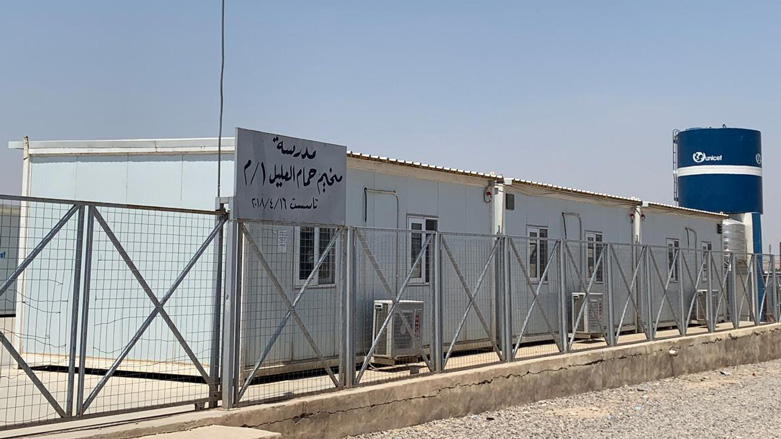Iraqi forces cause panic at displacement camp with new 'screenings' of families

ERBIL (Kurdistan 24) – A human rights organization has reported that panic broke out among over 3,500 families living in an Iraqi displacement camp when forces from multiple security agencies entered in early July and began “screening” them for their relatives’ possible affiliation to the Islamic State, in contravention of international displacement standards and Iraqi law.
“While Iraqi police forces should be taking reasonable actions to improve security for everyone, the military should not be occupying schools or even entering camps for the displaced,” said Lama Fakih, acting Middle East director at Human Rights Watch (HRW) in a new report released on Thursday.
According to HRW, agents from Iraqi Military Intelligence, the National Security Service (NSS), SWAT forces of the Ministry of Interior, local police, and militia members of the Popular Mobilization Forces (PMF) all took part in the screenings over three days at the Hammam al-Alil 1 camp, located 30 kilometers south of Mosul.
Although all families already faced security screenings when they arrived at the camp, forces handed out written forms that requested detailed information of all family members, threatening legal action if anyone failed to complete them.
Human rights organizations and the United Nations have documented Iraq forces’ widespread persecution, arrest, and harassment of even distant relatives of those suspected of Islamic State affiliation, including children.
International standards and multiple Iraqi regulations restrict security forces from entering camps with weapons.
When asked by Human Rights Watch, an army colonel who manages security at the screening site adjacent to the camp claimed that the soldiers needed to be armed because his forces “do not have a presence inside the camp, and because of fears that camp residents are potentially armed, smuggle drugs and alcohol into the camp, and are engaged in criminal activity like prostitution.”
He did not explain what danger the possible presence of alcohol or prostitution posed to the elite troops, requiring them to carry firearms.
Residents of the camp have described other instances of security forces entering and coercing women they knew into sex, particularly women who no longer had male adult relatives with them. These included two women “who had become pregnant within the last six months as a result of coerced sex by security forces.”
One resident told HRW that the screenings triggered a panic in the camp because those who lived there feared arrest just because they have a relative who may have joined the Islamic State, saying he knew of families “who fled the camp upon hearing about the screenings, even though their home had been destroyed during military operations and they had nowhere to go.”
The report declared, “Individuals should only be detained according to the law, when there is evidence of their having committed criminal offenses themselves, and not because of the actions of their relatives.”
